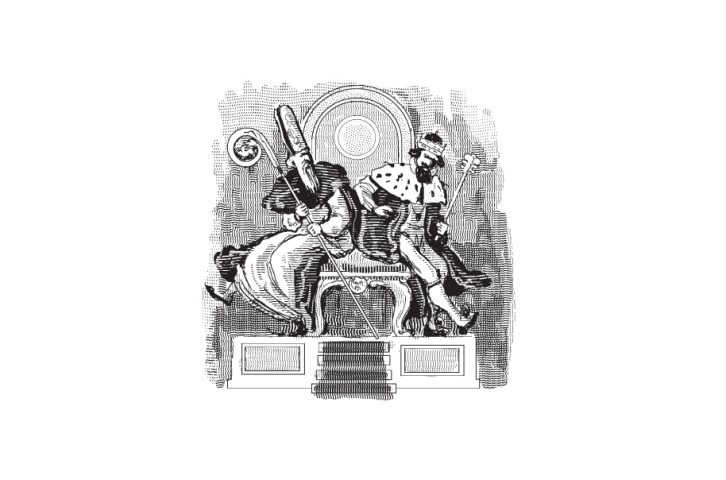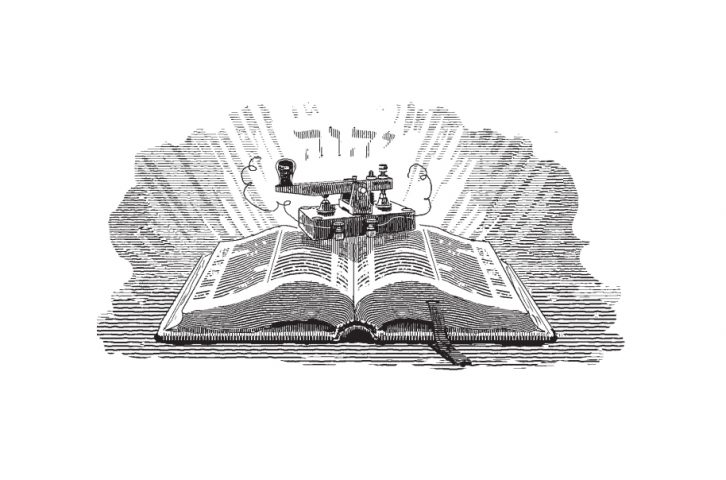The Lincoln-Douglas debates set a bad example for American politics. Though undoubtedly the greatest forensic exchange in our history, they have led to a mania for debates, or so-called debates, among our presidential candidates. According to the New York Times, of the 1,018 debates in this election cycle so far, almost 50 featured the contenders in the presidential primaries.
And not one of these was a debate in the classic sense. When Lincoln and Douglas went at it, each contest took three hours: one hour for the opening speaker (they alternated), an hour-and-a-half for his opponent, and then a half-hour's rebuttal. Even more amazing, to modern sensibilities, is that the entire discussion was devoted to a single subject—the expansion of slavery into the western territories. There were no newsmen preening for the cameras and lobbing self-serving questions. They were taking notes. It was called reporting, remember?
It would be painful to imagine two modern politicians locked in a three-hour marathon like that. If held to the single subject rule, each would probably sputter to a halt after 15 minutes (I'm being generous). Perhaps there are a few gaseous supermen who could fill three hours with sheer platitudes, weaving bloviated variations on the same insipid theme. But the scene is too awful to contemplate. Judging from reality television, though, it might draw high ratings.
You learn something from watching debates, of course, though the point of diminishing returns sets in well short of the 50th encounter, much less the thousandth. The irony is that Abraham Lincoln and Stephen Douglas were not running for president. They were pursuing a Senate seat from Illinois (though, thanks in part to their debates, each became a nominee for president two years later). Forensic skill is an asset for a senator, who debates with his colleagues on the Senate floor. The president never has to debate anyone.
The first presidential debate between the major party nominees occurred in 1960, between John F. Kennedy and Richard M. Nixon—two senators who had gotten carried away with the centennial celebration, in 1958, of the Lincoln-Douglas exchanges. (The sesquicentennial is this year, by the way.) Two senators are running for president this year, too, and various proposals for town hall meetings and, yes, L-D "debates" are already being floated.
These forums may prove important, but as a general rule you learn more from listening to and—especially—from readingthe contenders' major speeches than from tuning in to the debates. Presidents do have to give speeches, so there is a vocational relevance; and the format is conducive to extended argument and cultivated style, which modern press-conference-style debates manifestly are not.
* * *
Judging from their speeches so far, John McCain and Barack Obama will make this one of the most interesting rhetorical seasons in a long while. (During the George H.W. Bush, Bill Clinton, and George W. Bush administrations, the gods of oratory did not smile upon our suffering land.) McCain's speeches are hymns to patriotism—not to God and country, exactly, because he distinguishes the two rather differently than did, say, Ronald Reagan, who wanted to restore the public role of religion in this city on a hill. The Arizona senator seems content to keep revealed religion private, but wants to fill the public square with patriotic ritual. Thus he has brought back the old, neglected god of "bipartisan problem solving." And though a type of compassionate conservative (he wouldn't use the term, of course), he thrusts personal honor to the center of political life. That's compassionate conservatism with a difference. Honor is a great theme of political life, and of political tragedy.
Obama's speeches are something else again. Unlike most modern presidential orations, his eschew the relentless logic of leadership. He doesn't call himself a leader very often, nor ask people, with the candidate's usual gusto, to follow him (quickly now) into the future. His campaign planks are of course standard-issue liberalism, copied virtually wholesale from the unions' wish books. But he doesn't seem particularly interested in what he himself derides as "ten-point plans," nor in the "grand speeches" needed to extol them and himself.
As observers have noted, his rallies are Happenings. He wants his campaign to be "the occasion, the vehicle, of your hopes, and your dreams." He exhorts his supporters, "Let's be the generation that ends poverty in America…. Let's do this." He calls them to be "men and women who are not content to settle for the world as it is, who have the courage to remake the world as it should be."
Whew. At the 2004 Democratic National Convention, Obama said, "I believe that we have a righteous wind at our backs, and…we stand on the crossroads of history." His speeches guarantee that there will be plenty of righteous wind blowing in 2008.


